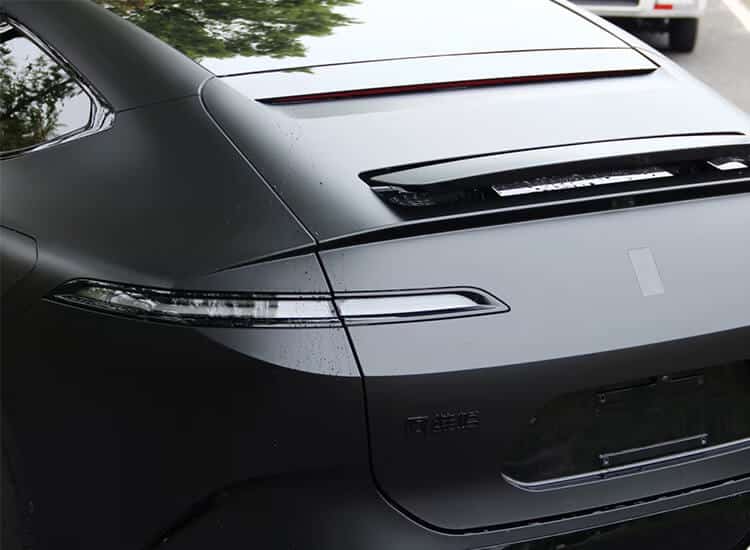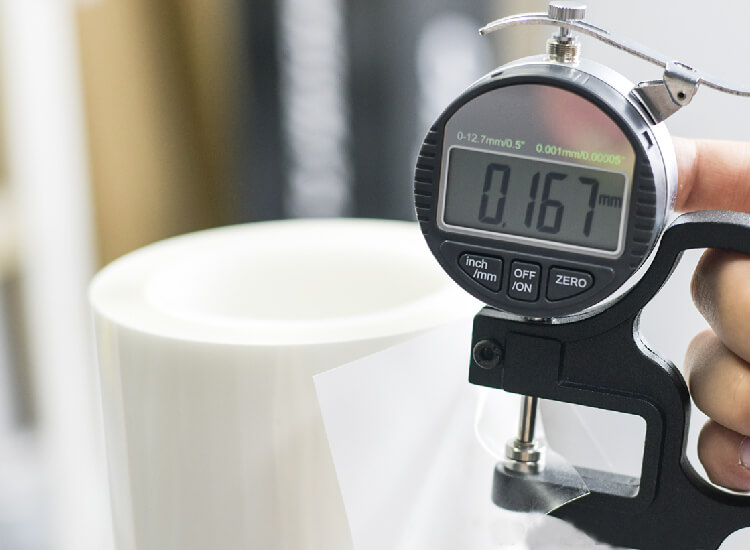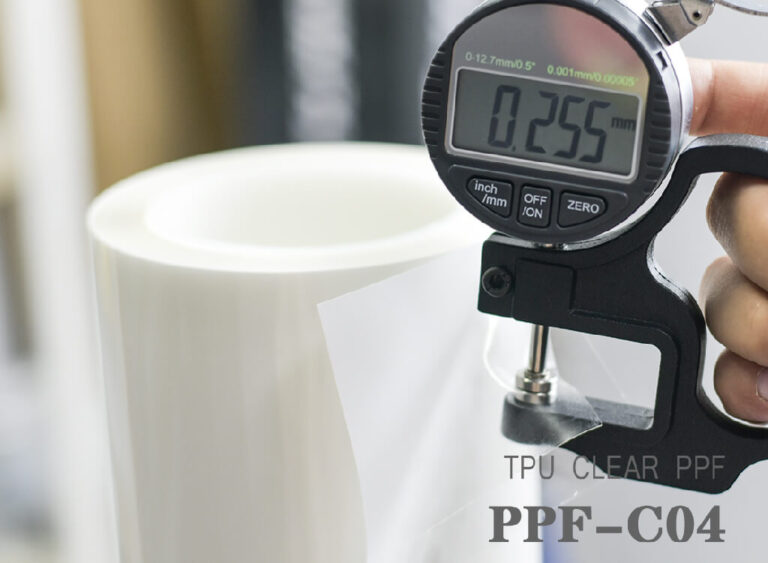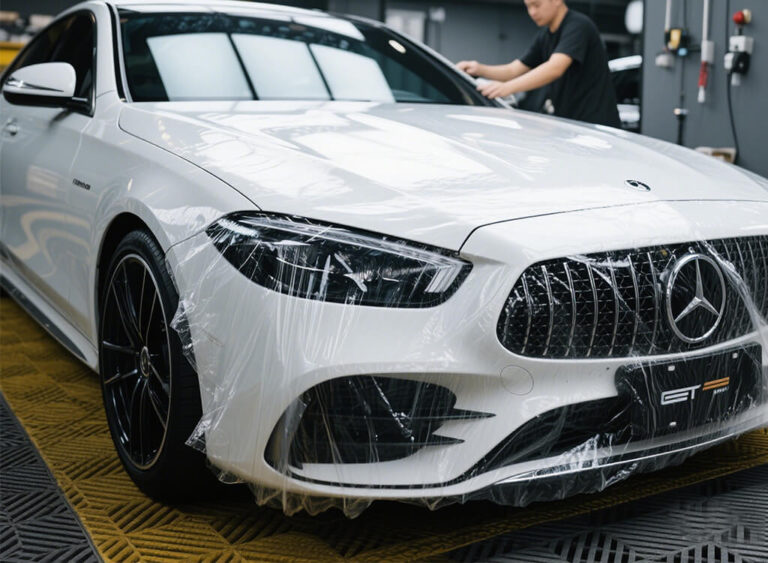How Does Paint Protection Film Works On Cars?
Paint Protection Film (PPF) is a plastic film(TPU/TPH/PVC) applied to a vehicle’s surface to shield the paint damage and environmental contaminants. This self-healing film works by absorbing minor abrasions and heat-activating to restore its smooth finish. Whether you’re a car owner or an automotive business, PPF enhances vehicle longevity, maintains resale value, and provides long-term protection. Learn how paint protection film works and why it’s a must-have for preserving your car’s flawless look.
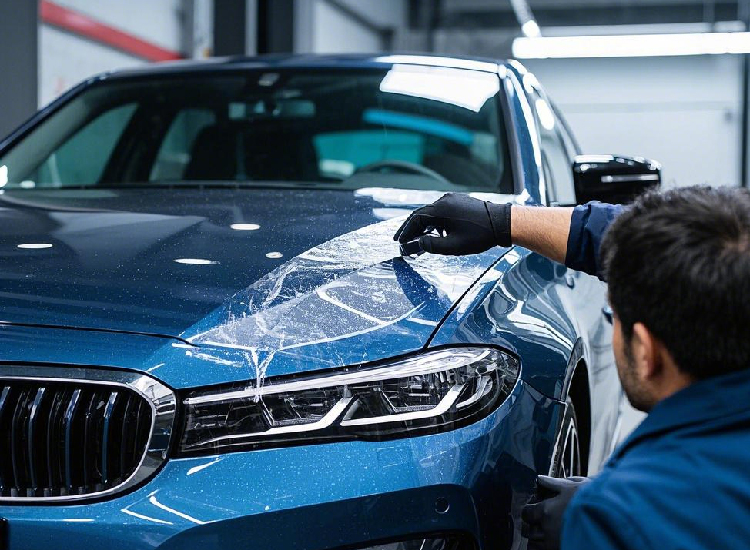
About The Paint Protection Film?
Paint Protection Film (PPF) is a transparent polyurethane film applied to the painted surfaces of your vehicle to act as a protective barrier. It forms a durable shield that protects your car from various environmental hazards like road debris, bugs, and harmful UV rays. This high-performance film is cut to fit the exact contours of your car and adhered to the surface, offering an almost invisible layer of defense.
Not all PPF products are created equal. High-quality PPF options are made with advanced technologies to resist yellowing, maintain clarity, and provide long-term protection for your car’s paint. With PPF installation for cars, you get a custom fit that ensures your vehicle’s paint is guarded from the elements without compromising the aesthetic appeal.
What Is The Structure of PPF?
Paint Protection Film is engineered with several layers to ensure maximum protection and durability. Here’s a breakdown of the layers commonly found in high-quality PPF. Together, these layers offer a powerful shield that keeps your vehicle’s exterior protected, ensuring the longevity and integrity of its paint job.
Coating Layer
The coating layer of Paint Protection Film (PPF) serves as the topmost defense against surface contaminants, such as dirt, water, and bird droppings. This layer is also highly resistant to scratches and UV rays, preventing the film from yellowing and maintaining its clarity and gloss over time.
Core Layer-Substrate
The core layer or substrate of PPF is made from durable polyurethane that provides the primary structure and impact resistance. This layer absorbs and disperses energy from physical impacts, such as rocks or debris, to prevent chips and scratches from reaching the vehicle’s paint.
Adhesive Layer
The adhesive layer ensures a strong bond between the PPF and the vehicle’s surface, allowing for seamless installation and a secure fit. It also enables the PPF to be easily removed without damaging the car’s paint, making it ideal for long-term protection with minimal maintenance.
How Does PPF Protect Car Paint?
The main function of PPF for car paint protection is to absorb and deflect the physical impact of debris, rocks, and other road hazards that could otherwise cause unsightly chips or scratches. It also provides a protective barrier against UV radiation, which can fade and degrade your car’s paint over time.
By acting as a shield against environmental elements, PPF helps preserve the appearance of your vehicle for a longer period. It’s particularly beneficial for high-impact areas like the front bumper, side mirrors, and hood, which are prone to damage from rocks and debris.
Self-Healing Technology: The Secret to Long-Lasting Protection
Self-healing technology is one of the most important features of PPF for cars. The molecular structure of the film allows it to “heal” minor scratches and swirl marks when exposed to heat—whether from the sun or simply ambient temperatures. This means that small abrasions and imperfections will disappear over time, keeping your car looking flawless without the need for constant maintenance.
The self-healing properties of PPF are one of the primary reasons why it offers long-lasting protection. Even after daily wear and tear, the film can return to its original smooth, glossy appearance.
How Does Paint Protection Film Self-healing?
Choose High-Quality PPF For Better Protection
Not all PPF products are the same. While there are many options on the market, choosing a high-quality paint protection film ensures superior protection for your car. Premium films like Avery Dennison Supreme PPF Xtreme offer thicker layers, advanced UV protection, and enhanced scratch resistance, making them more effective at preserving your vehicle’s finish.
High-quality PPF provides more durability and better performance, ensuring that the film stays intact for years without yellowing or losing its protective capabilities. These films also offer better adhesive systems, making installation smoother and ensuring a more secure bond between the film and your car.
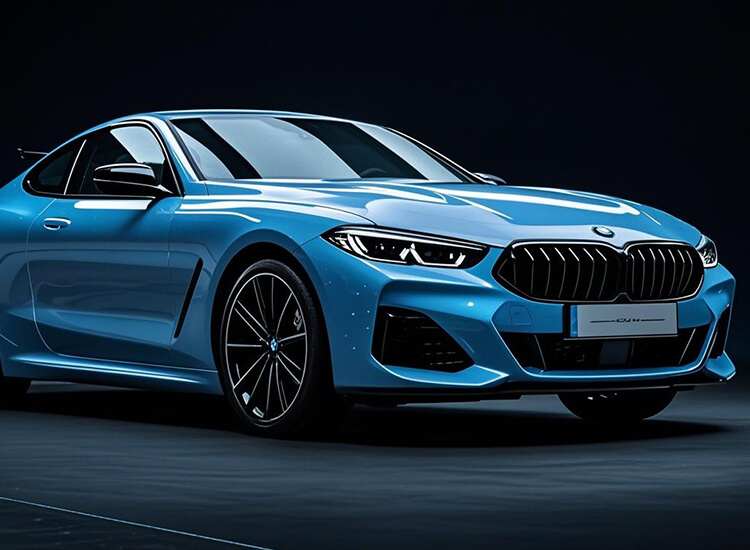
Main Benefits of Paint Protection Film For Cars
There are many benefits to installing PPF on your car, and here we list 5 of them. If you want to learn more about it, please read ELOV another post PPF Benefits.
Protection from Physical Damage
PPF protects your vehicle from chips, scratches, and abrasions caused by rocks, road debris, and other impacts.
UV and Chemical Resistance
The film shields your car’s paint from harmful UV rays as well as damaging substances like bird droppings and tree sap.
Self-Healing to Keep Your Car New
Minor scratches and swirls disappear over time with the film’s self-healing properties.
Maintained Appearance
With PPF, your vehicle’s paint stays looking new, with a glossy finish that enhances its color and depth.
Long-Term Investment
A high-quality PPF can last for many years, offering protection against wear and tear, thus reducing the need for costly touch-ups and repairs.
Are there Disadvantages of Paint Protection Film?
While Paint Protection Film (PPF) offers numerous benefits, there are a few potential drawbacks to consider before investing in it:
Initial Cost
The upfront cost of PPF installation can be significant, especially for high-quality films. Full vehicle coverage can range from $2500-$4000 more, depending on the brand and size of the vehicle, making it a more expensive option compared to traditional waxing or sealants.
Installation Complexity
Applying PPF requires professional installation to ensure a smooth and precise fit, especially for areas with complex curves or intricate details. Poor installation can lead to visible seams, bubbles, or misalignment, affecting the overall appearance and effectiveness of the film.
Yellowing Over Time
While premium PPF products are designed to resist yellowing, lower-quality films may degrade over time, especially if exposed to excessive sunlight or harsh environmental conditions. This can compromise the appearance of the film and detract from the vehicle’s overall look.
Edge Peeling
Over time, the edges of the PPF can begin to peel or lift, especially if the film wasn’t applied correctly or if it is exposed to excessive wear. This can affect the longevity and protective abilities of the film and may require reapplication or replacement.
Limited Protection Against Major Impacts
While PPF is highly effective at preventing minor chips, scratches, and abrasions, it may not provide full protection against larger impacts, such as those caused by collisions or heavy-duty accidents. In such cases, the film might absorb the initial impact but may not fully shield the paint from deeper damage.
What Is the Cost of PPF?
The cost of PPF can vary depending on several factors, such as the brand, the type of film, and the size of your vehicle. On average, the price for full PPF installation can range from $500 to $10000 or more. Here are some factors that affect the cost:
• Full vehicle or partial installation
• The size of the vehicle (larger vehicles require more material).
• The complexity of the installation (curved or intricate surfaces may require more detailed work).
• The quality of the film used (premium films will cost more but provide superior protection).
Though the initial cost may seem high, the long-term benefits of PPF—including protection from expensive paint repairs—make it a worthwhile investment.
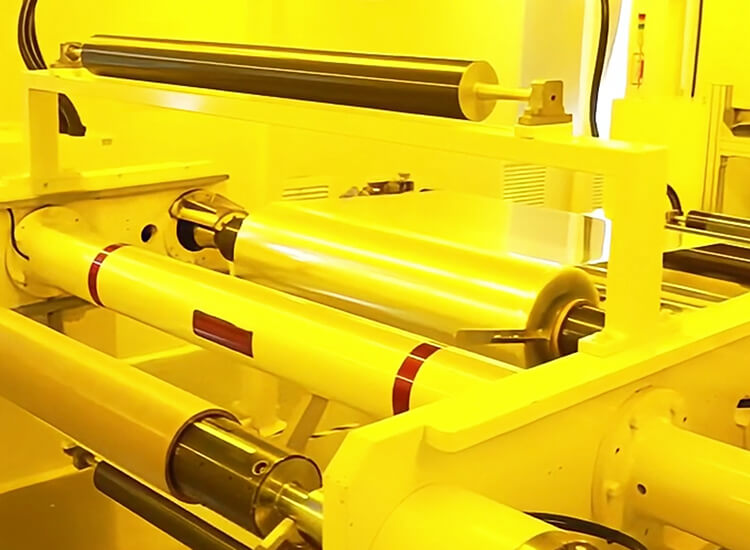
Top Paint Protection Film Supplier Recommendations
• Avery Dennison Supreme PPF Xtreme: This self-healing PPF offers advanced protection against scratches, road debris, and UV rays, making it a top choice for premium automotive protection.
• 3M Scotchgard Pro Series: A long-time leader in the industry, 3M offers a range of high-quality films with exceptional durability and ease of installation.
• XPEL Ultimate Plus: Known for its clarity and self-healing properties, XPEL offers one of the most durable and high-performing PPF products available.
• ELOV PPF: A professional manufacturer of automotive paint protection from China, providing fast and reliable OEM services to the global market.
Paint Protection Film Suppliers
At the End: PPF Is An Investment For Your Car
Paint Protection Film is an essential tool for maintaining your vehicle’s paint job and protecting it from the elements. Whether you’re worried about chips, scratches, or UV damage, PPF offers a durable, cost-effective solution to preserve the look and value of your car.
By choosing high-quality PPF and installing it professionally, you can ensure that your vehicle remains in top condition for years to come. With the added benefits of self-healing technology, UV protection, and scratch resistance, paint protection film is a smart investment for any car owner looking to safeguard their vehicle’s appearance.
Boost Your Business with ELOV Premium Self-Healing PPF
ELOV provides high-quality PPF solutions and OEM services tailored to meet the demands of wholesalers and brand owners. With our advanced technology and dedicated support, you can offer your customers top-notch, durable protection for their vehicles. Contact us today to discover how ELOV PPF can elevate your product lineup and drive your business forward!
Choose ELOV PPF as your trusted self-healing Paint Protection Film manufacturer from China!
| ELVO Offers Fast Paint Protection Film OEM |
| 25 Days |
| From Ideas To Mass Production |
| Start OEM For Your Brand Now! |

